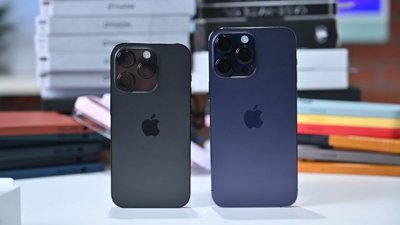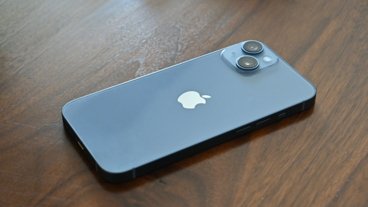FaceTime helps save New York woman's life after stroke symptoms spotted during call
A New York City woman claims Apple's FaceTime helped save her life, after symptoms of a stroke were spotted by her sister during a transatlantic conversation, leading her to seek medical assistance for the affliction.
Opokua Kwapong of New York was in a FaceTime call with sister Adumea Sapong, who is based in Manchester, U.K., when the stroke symptoms were spotted, reports the BBC. Sapong called the older 58-year-old sister, waking her from an afternoon nap, and quickly noticed Kwapong's face "didn't look right" in the video call.
"She also said that I was slurring my words, but I thought she was just fussing and I didn't believe her," admitted Kwapong. Sapong recalls Kwapong telling her she had not been feeling well during the call, and that she had also been feeling tired and had difficulty walking.
After suggesting taking an aspirin, Sapong saw her sister having trouble picking up a glass of water, before noticing that her face was drooping, prompting Sapong to advise to hang up and immediately see a doctor. Kwapong was dismissive, causing Sapong to conference in another sister, who is also a doctor, for further advice.
Once the conference call commenced, all sisters noticed Kwapong's speech was slurred, another sign of a stroke, causing the other two sisters to urge her to call a doctor. At this point, Kwapong called 911.
Doctors diagnosed Ms Kwapong as having a clot on the brain, causing a stroke that left her paralyzed on her left side.
"There is no doubt that FaceTime saved my life," said Kwapong after the incident. "If my sister had not noticed that something was not right, then things could have been so different."
Ms. Kwapong also notes that she has to rely on technology more following the stroke, advising it "now allows me to live my life." She also admits to relying on video conferencing for her work as a food scientist, admitting that she is not able to travel as much as she did before.
"If it had not been for FaceTime," added Kwapong. "Then, we would be having a very different conversation right now."
Another of Apple's products was reported to have helped save a life, with the SOS feature of the Apple Watch used to call for assistance following a car crash. In late 2017, Kacie Anderson commanded her Apple Watch to call 911 after a drunk driver hit her car at a stoplight, with Anderson found to have a severe concussion, brain swelling, and bulging disks - repercussions still being dealt with long after the accident took place.
 Malcolm Owen
Malcolm Owen












 William Gallagher
William Gallagher
 Mike Wuerthele
Mike Wuerthele
 Christine McKee
Christine McKee

 Andrew Orr
Andrew Orr
 Sponsored Content
Sponsored Content







